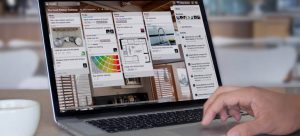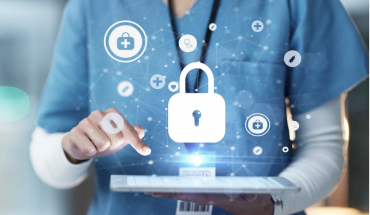
Photo courtesy of Trello
We’ve all done it. Visited our local Starbucks, Tim Horton’s, or other public place and logged on to the public Wi-Fi network to save some of our precious cellular data. But is it safe? And what can you do to make sure you don’t make yourself vulnerable to cyber criminals?
According to Kaspersky Labs, 70% of tablet owners and 53% of mobile phone users have used a public Wi-Fi network. But they can be easily intercepted. You could go the extra mile to ensure safe usage by doing something like setting up a Virtual Private Network (VPN) to encrypt the traffic sent and received between your device and the VPN server. But not everyone has the tech-savvy to do such a thing.
Here are a few simple tips you can follow to help make your public Wi-Fi usage a little safer.
Don’t access sensitive data
When sipping your morning latte at the local coffee shop, it might be a great time to check the news headlines, log on to a few favourite websites, and play some fun games. But steer clear of accessing anything with sensitive data that could be attractive to cyber thieves. When you’re on a public network, it isn’t the best time to check your bank account balances or pay bills, for example, or do some online shopping. Save that for when you’re safely at home, logged on to your secure Wi-Fi network.
Use reputable brand networks
While they aren’t foolproof, make sure you are using the venue’s own network, and not an open one that happens to be accessible there. If you’re unsure, ask an employee to provide the correct network name (SSID) for their establishment, and you can even go so far as to ask for a patron password if they have one for a protected guest network instead of an open one. This can also help ensure that you aren’t inadvertently logging into a fake network that’s using a name similar to the location’s name. Bottom line: log on to the McDonald’s network, for example, not the open network called “Bill’s Laptop.”

Photo courtesy of Starbucks Canada
Turn off file sharing, Wi-Fi
If you’re getting some work done on your computer, make sure to turn off file sharing. And if you use a MacBook, set your AirDrop settings to accept files from contacts only. Once you’re done using the network, turn off your computer or phone’s Wi-Fi.
Forget networks
It’s also a good idea to forget a network so your computer, phone, or tablet does not connect automatically whenever you are in range. Without doing this, you might be at another location nearby at another time, and not realize that your device has connected to the Wi-Fi network you were on a few days ago, leaving you open to unauthorized access.
Get an antivirus program, keep apps updated
It’s always a good idea to invest in good antivirus software, not only for your computer, but also for your mobile devices. All of the major antivirus companies, like McAfee, Kaspersky, and Avast, offer antivirus software options for mobile devices as well as computers. This will add another level of protection for your sensitive and personal data. It’s also prudent to keep your mobile apps updated to ensure that you have the latest defenses against any potential security vulnerabilities.

Photo courtesy of Starbucks
Your best defense?
Bring your own portable Wi-Fi hotspot so that you can control your Wi-Fi access, and still save that precious cellular data. Several companies offer such devices, which range from portable Wi-Fi hotspots from brands like MiFi, to Mobile Internet Keys from companies like Huawei that pop into a computer’s USB port and look just like a flash drive. Or, if you find that you require connectivity often in public places, considering upping your cellular data plan to accommodate your usage patterns, and opting for an LTE plan that you can share between your smartphone and tablet or other devices. This will cost a more money, but it might be worth it in the long run for your peace of mind.
Related:
Antivirus/Privacy Protection Software for Your Mobile Devices
Russian Meddling, iPhone Hacking Targets Civil Society, Canadian Cyber Researchers Say



